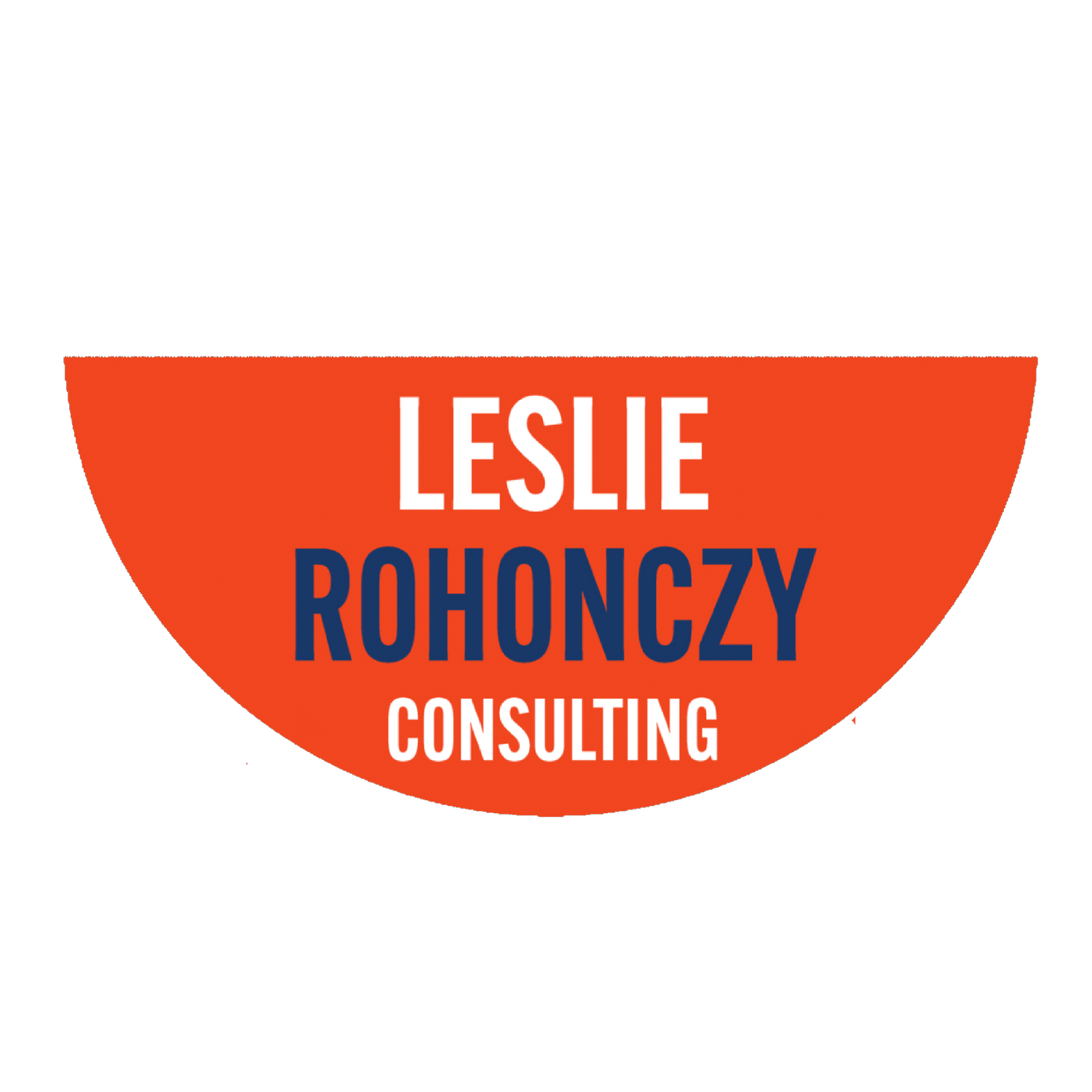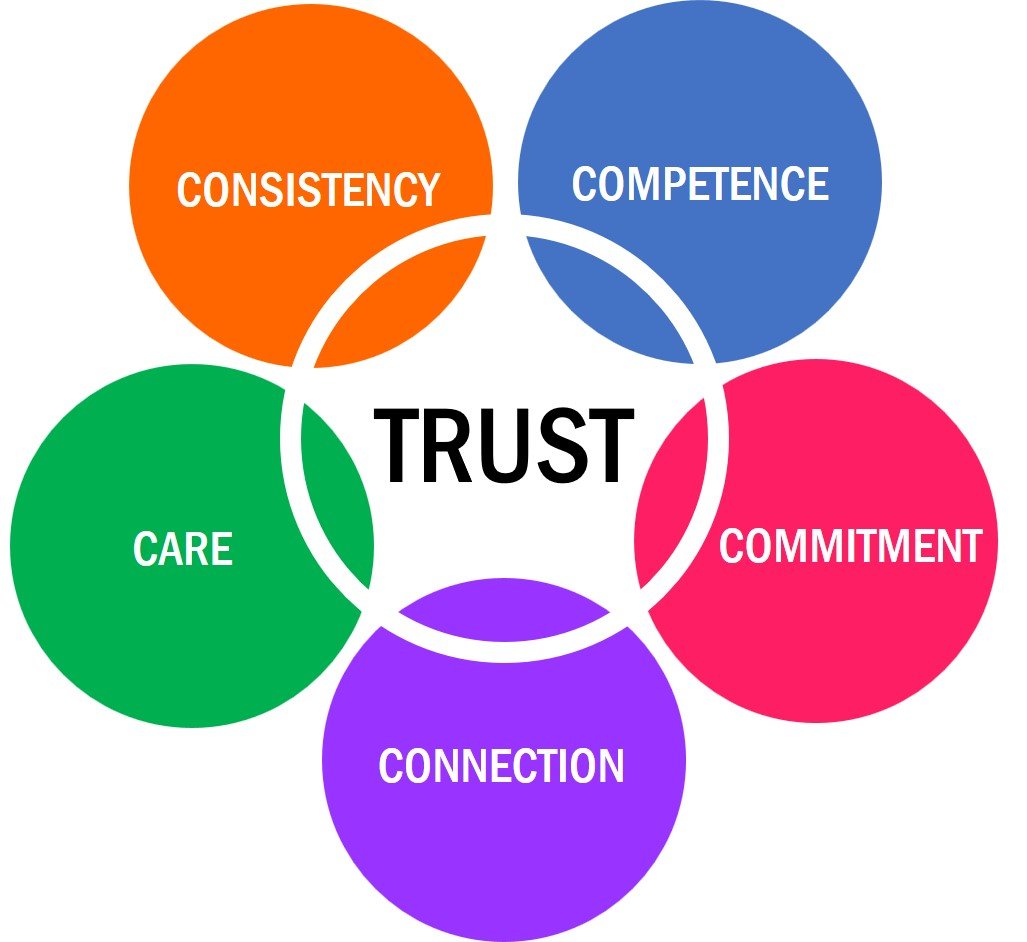by Leslie Rohonczy, Executive Coach, IMC, PCC | ©2023 | www.leslierohonczy.com
Vulnerability-based trust is the most powerful kind of trust we can cultivate; it means that we feel safe enough to reveal our vulnerability to someone else and know that they won’t use it against us. Each of us pays attention to distinct aspects of trust, depending on our own unique wiring. As you read the following ‘Five C’ descriptions, see if you can sense your own primary trust attribute, and which one might be your lowest.
FIVE ‘C’S OF TRUST
Excerpt from ‘COACHING LIFE: Navigating Life’s Most Common Coaching Topics’, by Leslie Rohonczy
Amazon, 2023
CONSISTENCY: This aspect is all about reliability: doing what we say we will, and being intentional about our yeses and our nos. This consistency is observed in our actions, in how we hold ourselves accountable for our commitments and follow through by doing what we say we’ll do, when we say we’ll do it. When people learn that they can’t depend on us to keep our promises – no matter what great excuses we may have – it’s a trust-killer. We tend to judge others’ reliability in terms of time and quality. Slow to return emails? Cancel plans often? Break promises? Show up late to events? What message does our behavior send? We should never make promises we can’t keep, even if we’re just trying to calm a tricky situation. We’ll build stronger trust with others if they know that we consistently follow through and do what we say we will.
COMPETENCE: Others will be more concerned with our abilities, standards, and skills: when we know what we’re talking about, people believe that we are a credible source of information and insight. Our competence and credibility are a combination of how we present facts and theory, our skills and knowledge, and our ‘presence’ (the way we look, act, talk, and communicate). Humility is also a key aspect: when we pretend to know something that we actually don’t, and others see through our smoke and mirrors (as they often do), we become untrustworthy to them.
COMMITMENT: Some people will be more focused on the passion in our eyes as we deliver our message, so that they can connect to the deeper purpose that inspires us. Making our commitments visible helps us inspire the trust of others. It’s reassuring to see someone fully committed, because it lets us know that we can depend on them, especially when facing challenges. When our commitment is solid, we can engage in productive conflict that moves everyone forward. Some believe that trust creates harmony, when in fact, trust allows us to have productive conflict that won’t damage our relationship, and often strengthens our connections as a result.
CONNECTION: Speaking of connection, when we focus on creating close, open, and accepting connections, others feel comfortable talking to us about difficult things. People who are good at this aspect of trust walk their talk and are willing to get emotionally close to others. Building this connection requires us to be transparent about our thoughts and emotions. When we’re accepting and non-judgmental, people open up to us more easily because they trust that we won’t judge or criticize them. They feel seen and heard and can be themselves when they most need to.
CARE: Finally, to build vulnerability-based trust, we show that we’re concerned with the welfare of the other person, rather than pushing our own agenda solely for our benefit. Others may perceive us as self-interested if we care more about appearances, about getting our own way, about being liked or creating a favorable impression. Caring people are typically good listeners and genuinely want to understand others’ experiences and emotions. They have a desire to help and consistently show they care through their words and actions.
We each have a preferred aspect that we habitually start with, and so it’s important to understand that what engenders trust for one person might not resonate with another. For example, I look through the lens of consistency first: if you show up on time, keep your promises, and do what you say you’ll do, I trust you. It’s really that simple. But not everyone prioritizes consistency the same way. For example, consistency is the lowest one for my husband (a.k.a. ‘The Big Handsome’), who favors the Care aspect. He monitors for high self-orientation behaviors like someone putting their own needs or interests above the greater good and sees these as signals that they may not be trustworthy. If we can’t connect with someone enough to build trust, it may just be that they’re looking through a different lens than we are.
PRACTICE: PERSONAL TRUST MEASURES
Think about the last time you required someone to trust you. Perhaps it was related to the family budget, a new project at work, or a travel adventure. Find an example that you can evaluate in hindsight, and reflect of these questions:
1. How did you demonstrate that you care?
2. How did you attend to consistency?
3. How did you establish your competence?
4. How did you demonstrate your commitment?
5. How did you build your connection?
Now, think about how the other person reacted. What trust aspect(s) do they seem to value most? What indicators do you observe that inform that opinion? How might you adjust your approach next time?

